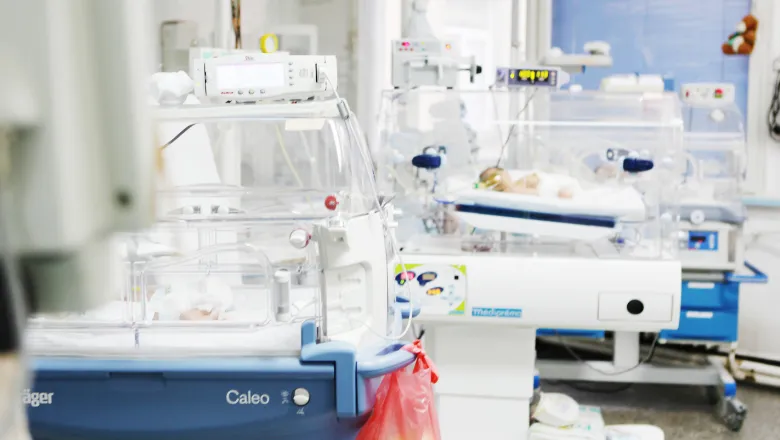[we] are very pleased to be funding two research groups led by Imperial College and Kings College London respectively, and who in turn are collaborating with a number of other clinical and biomedical research groups on the project.”
Julian Mylchreest
19 October 2021
King's research group awarded funds to investigate origins of preterm labour and birth
The group plans to map the uterus to understand the biological events driving the transition from pregnancy to established labour.

Premature birth affects 15 million babies across the world and in the UK 60,000 babies are born preterm every year. It is the leading cause of childhood mortality in the world, and many of those babies that survive are disadvantaged by chronic illness or disability. Yet pregnancy is one of the least explored aspects of human biology and research remains largely uncoordinated and underfunded.
Led by Rachel Tribe, Professor of Maternal and Perinatal Sciences in the School of Life Course Sciences, a group of King’s researchers has been selected to jointly conduct the £1 million collaborative project, funded by the Borne Foundation. The highly skilled group includes Mario Falchi, Alessi Visconti and the GSTT-KCL NIHR BRC Translational Bioinformatics team as well as a number of additional collaborators.
Borne’s Uterine Mapping Project (BUMP) was conceived after its founder consulted with clinical and scientific experts to identify what was holding back the advancement of preterm birth research. The group identified a strategic opportunity to facilitate the systematic and open access study of the biological interactions across different cells and tissues of women as they transitioned into labour.
Julian Mylchreest, Chairman of Borne, described BUMP as "a project that will look to map the uterus and create a cell atlas that can facilitate a step change in our knowledge of the mechanisms of preterm labour and new approaches for its prediction and prevention”.
He continued:
The study will gather samples collected from participating maternity hospitals, processing the specimens collected and isolating cells of interest in readiness for analysis by bioinformaticians. The data generated at the cellular level from this unique resource will power the work of renowned preterm birth experts such as Professor Tribe and her team, who will be able to extend the scope and context of their work to accelerate the advancement of knowledge in ways that are simply not possible without collaboration.
My colleagues at King’s College, Chelsea and Westminster Hospital, Newcastle University, Imperial College and the University of Turin, are excited to receive funding from Borne to build new biological foundations through the application of novel high throughput molecular techniques to disentangle the mechanisms underlying preterm birth. Our collaborative effort will provide vital data that ultimately will enable us to map the uterus and determine where each pregnant woman lies on the transition from no labour to established labour.”
Professor Rachel Tribe
Professor Mark Johnson, Founder of Borne, added, “Childbirth is the inevitable maturation event at the end of pregnancy, and we do not know why labour is sometimes triggered prematurely, often with devastating lifelong consequences on the baby and its family. Research into preterm birth is underfunded and under-coordinated, and we are excited to be taking the first steps towards making our vision of an open access cell atlas of the uterus – what we call BUMP – a reality.”

